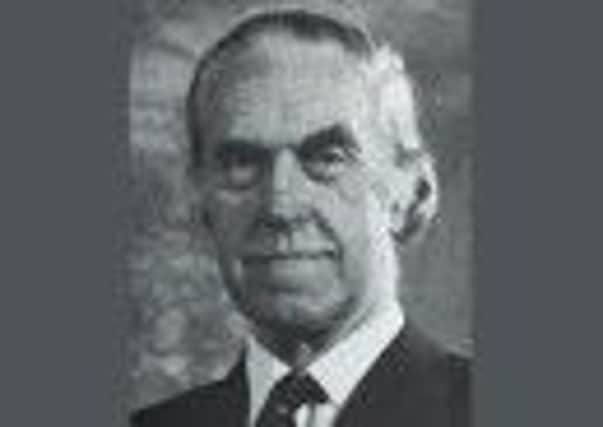Obituary: David Walker CBE, QC, regius professor emeritus of law


PROFESSOR David Walker made an inestimable contribution to the evolution and teaching of Scots law over half a century.
One of the most prolific writers of legal textbooks, he was the first holder of the chair of jurisprudence at Glasgow University where he introduced full-time law degrees, replacing the system where would-be lawyers only studied part-time while working – a scenario he believed was no way to learn their subject.
Advertisement
Hide AdAdvertisement
Hide AdConsequently, countless students benefited from his vision and the dissemination of his vast knowledge of the law, regarding this intellectual giant with awe and respect.
“He was a towering figure in Scottish legal education who, through his teaching and writing, influenced generations of students, academics and practitioners,” said Professor Mark Furse, head of the university’s School of Law.
A bank agent’s son, who suffered the loss of his father at 14, Walker was educated at the High School of Glasgow before going to Glasgow University to study classics. When the Second World War intervened, he joined the Highland Light Infantry’s City of Glasgow regiment, based at barracks in Maryhill, before transferring to the Indian Army Service Corps.
He served in the North African campaign in the deserts of Libya, then up through Italy to beyond Monte Cassino, reaching the rank of captain and returning home to continue his studies in 1946. He was able to graduate with an MA a few months later but ditched classics in favour of the law, gaining an LLB with distinction in 1948, the same year he was called to the bar.
As a practising advocate he preferred the civil courts to criminal work, although he frequently sat as a temporary sheriff in Glasgow. His main interest was damages and his distinguished bibliography includes The Law of Damages in Scotland, (1955).
Prior to that he had continued his studies as a postgraduate, as Faulds Fellow in Law at Glasgow University, which led to a PhD from Edinburgh University in 1952. A couple of years later he entered academia full-time after successfully responding to an advert for a professor of jurisprudence at his alma mater.
He was admitted as barrister of the Middle Temple in 1957 and was appointed Queen’s Counsel in 1958, the year he was elevated to the regius chair of law at Glasgow. He also served as dean of the Faculty of Law from 1956 to 1959 and was convener of the School of Law between 1984 and 1988.
Throughout his long academic career he wrote and published extensively on Scots private law and in the early days his concern was to address the lack of textbooks on major areas of the subject by providing accurate, logical and comprehensive explanations. Delivery of substance was his guiding principle, said the university.
Advertisement
Hide AdAdvertisement
Hide AdLater, after retiring from the regius chair in 1990, he continued to pursue his research and writing agenda as honorary senior research fellow at the university.
His publications spanned decades and included: The Scottish Legal System (1959); The Law of Delict in Scotland (1966); Principles of Scottish Private Law (1970); Law of Prescription and Limitation in Scotland (1973); Law of Civil Remedies in Scotland (1974); Law of Contracts and Related Obligations in Scotland (1979); and the Oxford Companion to Law (1980), many of them updated in numerous editions down the years.
In addition, in 1981 his edition of Viscount Stair’s Institutions of the Law of Scotland was published, followed by the Scottish Jurists (1985) and A Legal History of Scotland, in seven volumes (1988–2004).
As Glasgow University acknowledged, “his knowledge of law was compendious and unequalled … the debt owed to him by the Scottish legal profession is immense”.
He devoted his life to his subject and was an inspiring teacher, a man who always demanded the highest standards of himself and others. When asked if ever he was anxious about the number of students whom he had failed, he replied that rather he was worried about the ones he had passed.
Away from university life, he had been chairman of the High School of Glasgow Trust, enjoyed collecting a huge library of books and reading about history, economics and politics. His familiar figure was often seen striding out around Glasgow’s West End walking his beloved dog – or as he preferred to call it, taking a dose of the medicine canis ambulatio.
Professor Walker is survived his wife Margaret, whom he married in 1954.
ALISON SHAW